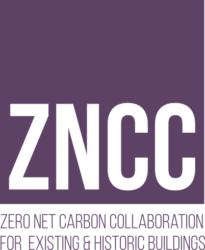Making the Case for Building Reuse through Better Metrics for Avoided, Operational & Embodied Carbon
A webinar programme of Climate Heritage Network Working Group 3 November 13, 2020
________________________________________________________________________________________
Decarbonizing existing and historic buildings provides one of the best opportunities to meet Paris Agreement Climate targets, because they represent about 40% of global GHG emissions.…and up to 70% in large cities. We know that reusing buildings is a powerful climate action also because of the opportunities to avoid both embodied and operational carbon emissions; we know that the optimal time to provide a decarbonizing retrofit/rehabilitation for old buildings is when they are at a lifecycle age for regeneration. However, we do not have widespread comprehension and action on best practices and policies for maximizing the climate action potential of the existing built environment, nor does the average person understand its importance. To resolve that, a better case for building reuse is needed. We must generate both data and tools to help calculate and design for optimal building decarbonization and communicate these facts effectively.
Enter CHN WG3: This working group has formed three subgroups to help accelerate development of data, tools and the optimal communication for making the building reuse case more accepted as a key need globally, in the fight against climate change. This webinar will feature a representative from each of these sub-groups, who will each take you on the journey that they have started and relate what their plans are for moving forward. They will inform about the work of the next year, leading to COP 26 in Glasgow.
DATA: "The Data Challenge: What We Have and What We Need"
Lori Ferriss will present why there is a dire need for Data in this field. She will explain existing resources, identify the gaps in current data and describe how we are approaching this challenge.
TOOLS: “Challenges and Ideals in Decarbonization Tools for the Built Environment”
Michael Netter will present why there is a need for advancing more Tools to assist developments in the Building Reuse field, how we are approaching this challenge and our plan for the next year and beyond.
COMMUNICATION: “Planning & Executing Effective Communication in Building Reuse and Retrofit”
Stephanie Phillips will present how a curated communications program for this Building Reuse Data & Tools Development could help to mobilize the public, the ACH sector, industry and the buildings sector to greater action in building decarbonization, a significant weapon in the fight against climate change.
Speaker Bios:
Lori Ferriss is the Director of Sustainability and Climate Action at architecture, planning, and preservation firm Goody Clancy, in Boston, USA. She is a founding Co-Chair of the Zero Net Carbon Collaboration for Existing and Historic Buildings (ZNCC), a Co-Chair of the Technical Committee for Sustainable Preservation of the Association for Preservation Technology International, and an advocate for building reuse as a critical climate action strategy at local, national, and global levels.
Michael Netter is a Professional Services Officer for the Institute of Historic Building Conservation in the UK. He has worked in the construction industries in the UK and USA and has degrees in Historic Building Conservation and Construction Engineering and Management.
Stephanie Phillips is a Senior Specialist at the Office of Historic Preservation, City of San Antonio, USA. She is currently leading the City’s deconstruction and salvage policy initiative and works directly with owners and stewards of historic properties through local design review. Her professional and extracurricular work focuses on the heritage sector’s role in circular economy policy, climate resiliency and equity, and embodied carbon in the built environment. She serves on the Executive Committee of Preservation Action and the national board of Build Reuse.
Session Moderator
Mark Thompson Brandt is a Conservation Architect and Urbanist with MTBA Associates, Ottawa, Canada.
He is a founding Co-Chair of the ZNCC Zero Net Carbon Collaboration for Existing & Historic Buildings and a former Co-Chair of the Technical Committee for Sustainable Preservation of the Association for Preservation Technology International. Brandt’s practice is focussed on existing and historic buildings and districts and works at the nexus of natural and cultural conservation.
